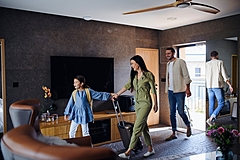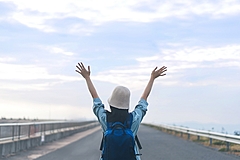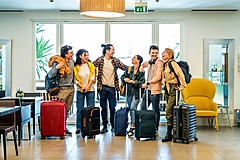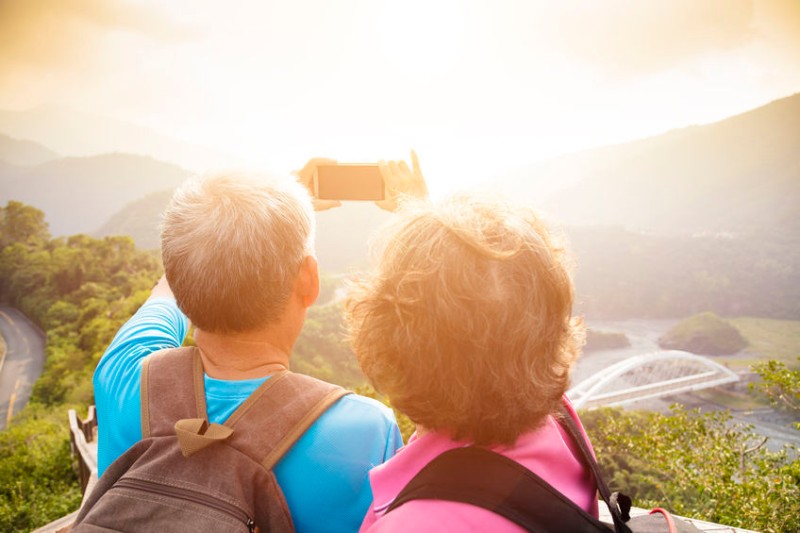
The survey on travel trends and changes of lifestyle and mindset in Japan amid the pandemic, conducted by JTB Tourism Research & Consulting, notably illustrates that Japanese female seniors were more willing to travel in the last three months of 2020 than before. Since COVID-19 broke out, those people had been negative about traveling.
In the last three months of 2020, the travel performance rate was 25% overall. Demographically, the top was 20s females with the rate of 36.4%, followed by 20s males (30%), 30s females (26.4%) and 60 years old or older males (25.7%).
The highest growth rate was found in 60 years old or older females with 24.1%, 7.2 higher points than the three month period from July to September. The lowest growth rate was seen in 40s females with 16.9%, almost the same level as 16.1% in the three month period from July to September probably because they were largely influenced by worse job environment, according to JTB Tourism Research & Consulting.
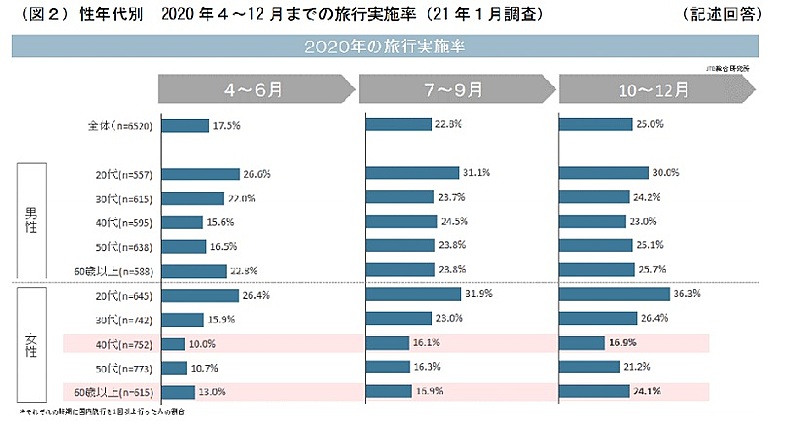 発表資料より:JTB総合研究所
発表資料より:JTB総合研究所
Regarding future travel plan in 2021, the ratio of people who plan to travel in Japan is still 27.6% only. Among 60 years old or older males, however, the ratio was 32.5%, much higher than the previous survey in September.
The ratio of people who plan to travel overseas was 7.5% in 2021 and 11.5% in 2022. While the ratios of younger generations were relatively high, like 18.7% among 20s males, 12.5% among 30s males or 16.3% among 20s females, answers of ‘never traveling overseas in the future’ were more found in 60 years old or older males with 12.9% and 60 years old or older males with 12.2%.
Based on the results, JTB Tourism Research & Consulting points out that the generational change would occur in the overseas travel market if the current travel restrictions extends longer.
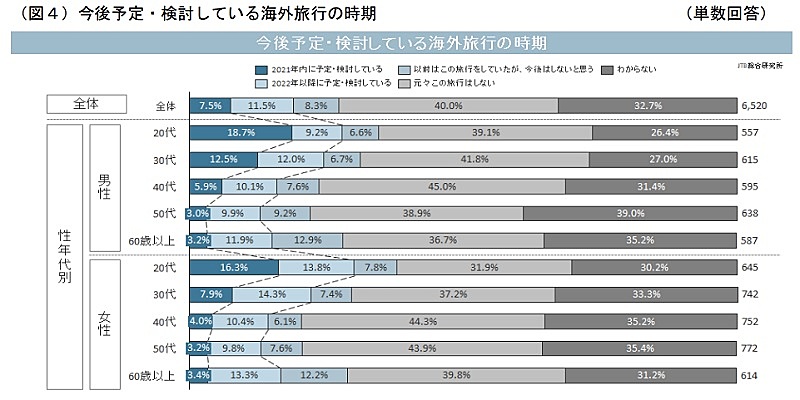 発表資料より:JTB総合研究所
発表資料より:JTB総合研究所
Regarding travel amid the state of emergency declaration, the top answer was ‘I had better stop traveling, following the government’s or local governments’ directions’ with 26.8%. The willingness rate of using ‘Go To Travel’ again after the program restarts was 15.7%.
When asking what kind of conditions are needed to restart traveling, the top answer was ‘if I can book a hotel or a ryokan I like’ with 33.1%, followed by ‘if COVID-19 cases reduce’ with 29.8% and ‘if the end of COVID-19 is declared’ with 28.9%.


